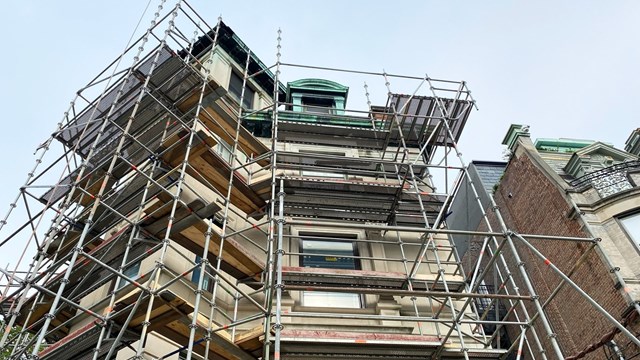A beautiful amenity space just footsteps away from one’s morning coffee is a luxury most residents would love to consider when deciding which property to call home. A well-maintained swimming pool can captivate potential homebuyers but also increases property values in existing buildings.
A swimming pool is a rare and valuable amenity for any residential building, and a real treat in the summer. Over the last 20 years, it seems that the amount of pools in the city has grown tremendously. Stuart Roaker, past president of the National Pool Management Association and owner of the Pool Therapist on Staten Island estimates there are 750 to 800 pools in New York City, as more and more luxury condominium developments include a pool in their design.
Some buildings with pools include Riverhouse and the Visionaire in Battery Park City downtown, 40 Mercer Street in SoHo, 200 Chambers in Tribeca, the Atelier and The Strand in Hell’s Kitchen, the Lucida on the Upper East Side, One57, Ariel, The Rushmore and 15 CPW on the Upper West Side, Oro in Brooklyn and the Viridian in Greenpoint, to name a few.
Maintenance Matters
Knowledge of swimming pools is the best equipment you can have when it comes to maintaining them. Commercial swimming pools generally provide most maintenance equipment on site; these swimming pools need constant care and are more than likely to be managed by a recreational amenities or pool management company.
“The attractiveness of a beautiful swimming facility does not come without challenges faced by many board members and property managers,” says Michael Zuchelli, vice president of operations of Elite Pool & Fitness Management Inc., located in Whitestone. “Proper operation, maintenance, and water safety of your swimming pool is a daily task that is governed by The New York City Board of Health.”
Basic maintenance items include chemical test kits, vacuum equipment and chemical additives, however most swimming pool operators use their experience and expertise to diagnose issues outside of general maintenance items.
Joseph W. Grimes, president of New York City-based EPG Spa & Pool Management, Inc., which services luxury high-rise condominiums with pools and/or health clubs, provides pool lifeguards and takes full charge of the care of the pool water chemistry and filter system at the properties it’s contracted for.
“Swimming pools need a lot of attention to keep the water clean, clear and fresh. Our lifeguards take chemical readings every two hours to ensure the pool is maintained at a constant perfect level of chemical balance. We test for water pH as well as water temperature,” he says. “We vacuum the pools and clean around the water line daily. The pool decks are swept and mopped regularly all day. The facilities must be kept as clean and sanitary as possible.”
“It’s important to hire a licensed professional for care of a pool, not just someone who does it here and there, as it’s a full-time job,” says Roaker. “The key thing is that people try to save money but end up spending five times as much. They just need to use common sense.”
Chemical Care
Everyone knows that you need to vacuum a pool and add chemicals, but it’s important that the right mixture is used, and that the pool is cleaned regularly. An unbalanced pool is the most common call that pool companies get and they’ll come in and blend the chemicals correctly.
Roaker says pool care also depends on the structure the pool is made of as steel, fiberglass and cement pools all require different services. “You wouldn’t use as much of a particular chemical on a steel pool as you would on a cement pool, so it’s important to follow the manufacturer’s guidelines,” he says. “Other things that come into play are where a pool is located—a basement, on a roof or somewhere else indoors.”
Different chemicals are placed into a swimming pool for different solutions and results. In New York City, the water has a high amount of metal, causing the water to have a greenish tint when it is untreated. According to Zuchelli, adding a metal releaser will mitigate the green tint when fresh water is first added to the swimming pool.
Chlorine is the primary chemical when fighting and eliminating bacteria and contamination in a swimming pool. The pH is measured by determining the acidity of the water, and a pool that does not have an ideal pH balance can cause swimmers to have skin and eye discomfort. Ensuring that a swimming pool has enough calcium is also essential when caring for its pipes and heating system.
“Most commercial pools require a backwash of the filtration system weekly,” Zuchelli says. “This process will increase the rate in which your swimming pool water is filtered, and is an essential part to optimizing the disinfection process within your swimming pool. Similar maintenance items should be performed by the certified pool operator that oversees the operation of your swimming pool.”
Safety First
The day-to-day operation of New York City swimming pools requires a certified lifeguard to watch over the pool during all hours of operation. The New York City Board of Health further requires all swimming pools to test their water chemistry hourly to ensure there is no risk for contamination. This daily water chemistry test must include the ratio of chlorine, acidity, calcium and alkalinity present in the swimming pool water.
According to the Centers for Disease Control and Prevention (CDC), drowning ranks fifth among the leading causes of unintentional injury death in the United States.
“The safety of your clientele is a concern most board of directors do not leave to chance,” Zuchelli says. “Property managers and boards alike rely on the expertise of amenity management companies to ensure the management of their health club is one that always provides an atmosphere of luxury and safety right at home.”
By the end of 2008, the Virginia Graeme Baker Pool & Spa Safety Act forced the commercial swimming pool industry to act quickly to comply with a nationwide mandate. Under the law, all public pools and spas must have ASME/ANSI A112.19.8-2007 compliant drain covers installed and a second anti-entrapment system installed, when there is a single main drain other than an unblockable drain.
Swimming pools that are not compliant face closure, and their operators are subject to heavy fines.
Designed to prevent injuries and fatalities caused by swimmers and soakers being trapped by the suction of underwater drains, the law became effective on December 19, 2008. The law was named after the seven-year-old granddaughter of former Secretary of State James Baker III, who died in June of 2002 when the suction from a spa drain trapped her underwater.
“You must make sure that any pool has a device that’s VGB-regulated, so that any deviation in pressure acts as a kill switch and automatically shuts it off,” Roaker says. “It’s a win-win situation—it can save the motor, but more importantly, it can save someone’s life.”
More recently the ADA passed a law requiring many public access swimming pools to have a handicapped pool lift for swimmers that are not able to access the pool via stairs or ladders. This is something that many condos have needed to comply with in the past year.
The Ins and Outs
Indoor and outdoor pools require similar maintenance procedures. They both require a certified lifeguard to be on duty at all times, their chemical levels must be taken every two hours, and adjusted if necessary and the pool must be vacuumed, and the filters must be maintained and cleaned.
“Outdoor pools are subject to the sun and will burn off much faster than an indoor pool,” Roaker says. “An indoor pool is climate controlled with dehumidification systems and the water is heated, so things remain on a constant.”
Twenty years ago, most pools were outside on rooftops, but developers are much more savvy now and understand that real estate up top is too valuable so most new pools are built indoors.
As spring comes in, outdoor pools begin preparation for the summer season in late April. Generally the owner likes to have the pool open on Memorial Day of course and perhaps a few weeks before on a limited weekend basis.
“The pool, if covered has the cover removed and the water is 'shocked' to clean it up and kill any bacteria,” Grimes says. Shocking simply means that “large amounts of chlorine are added to the water along with algaecide to circulate throughout the system for several days. The filter system is backwashed frequently to remove dirt and debris. If the pool was not covered, there is usually more work with draining out any remaining water from rain and snow and the leaves and other debris at the bottom are removed.”
At the end of the season, water is drained down below the filter return line and the pool is shocked again and algaecide added. The plumbing lines are drained of water from the filter to the pool so that plumbing lines do not freeze and burst.
Grimes says that once a year, an indoor pool should be completely emptied and thoroughly scrubbed and cleaned before refilling. Every few years the filter medium in a sand filter should be changed out and fresh sand and gravel installed.
“The steam rooms, saunas, aerobics and gyms are also under our management and are kept clean and closely monitored to see they comply with the department of health’s codes and the condominium’s rules and regulations,” Grimes says. “The steam and sauna on/off timers and emergency alarms all must be calibrated and kept in top working order.”
Be Prepared
A swimming pool is the jewel of many luxury development health clubs, so when entrusting your swimming pool operation to a professional, plan a walk-through with the pool operator to inspect any areas of your swimming pool that may show signs of work that might be needed.
Oftentimes, swimming pool repairs can be planned before the repair becomes an emergency. To avoid a major problem, swimming pool pumps should also be inspected each year during annual maintenance.
“We will encourage the properties we manage to have a secondary pool pump on site in the event there is a failure to the primary pump,” Zuchelli says. “There’s nothing worse for a managing agent to encounter a weekend summer scorcher, and your swimming pool is out of service because the pump went down.”
Money Issues
Having a pool presents a significant insurance risk. There’s always the chance someone could injure themselves by slipping on a wet spot, and despite lifeguards being present, something more serious could happen in the water. Talking with your insurance agent to ensure you have the best coverage is vital.
The cost to operate a pool mostly depends on the number of hours the pool is open for use because each hour it is open the lifeguard must be on duty. If the owner elects to keep the pool closed down for all but a few hours per day the lifeguard costs go down. The pool filter and chemical feeders must remain on to maintain the chemical levels at all times whether the pool is open or closed.
One final thought: Every condominium and building owner in New York City must be careful to renew the pool permit on a yearly basis at the beginning of the year or violations will be issued and the pool closed by the city until the permit is secured.`
Keith Loria is a freelance writer and a frequent contributor to The Cooperator.







Leave a Comment